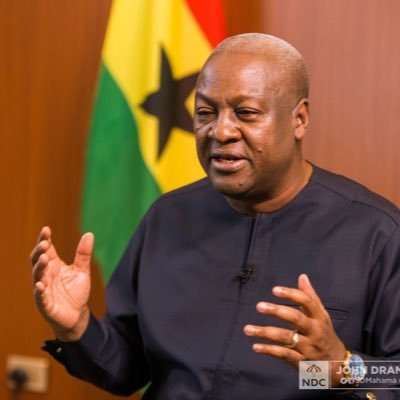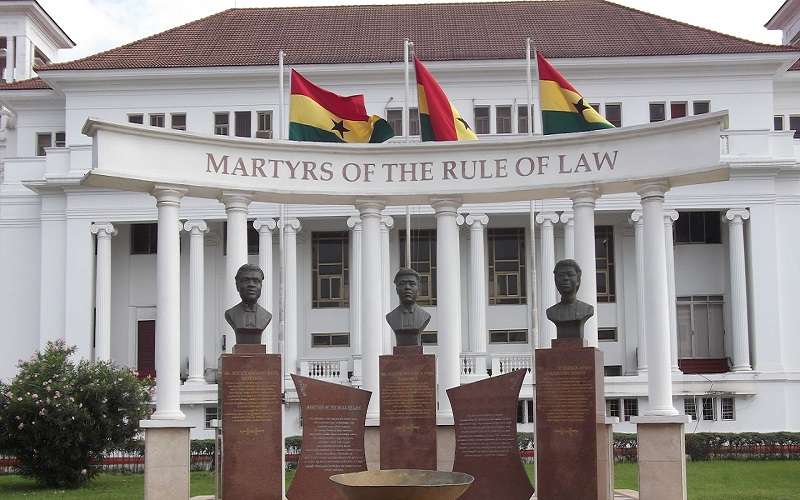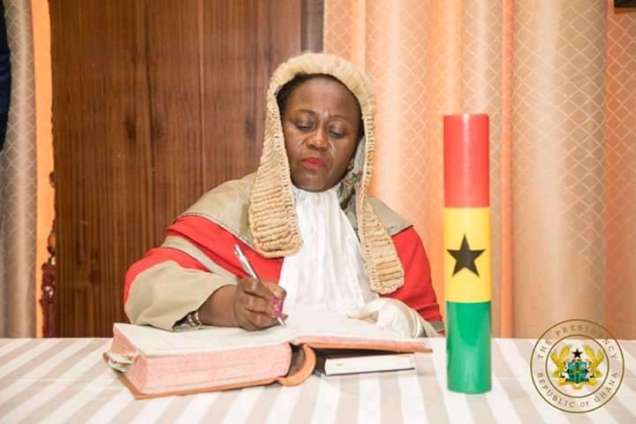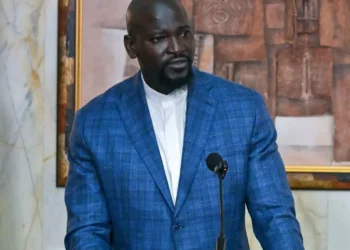Chief Justice Gertrude Araba Torkornoo has raised serious concerns about the handling of three petitions seeking her removal from office, emphasizing the fundamental right to “due process“.
The petitions, reportedly submitted to President John Mahama, were circulated on social media on March 25, 2025, before she was even notified of their contents.
According to Chief Justice Torkornoo, the Presidency’s announcement indicated that the petitions have been forwarded to the Council of State for consultation under Article 146(6) of the 1992 Constitution.
However, she pointed out that fundamental legal principles dictate that no action should be taken against an accused person without first informing them of the charges and allowing them to respond.
“Respectfully, as you are no doubt aware, it is the most fundamental precept of the common law and our constitutional dispensation ingrained into the justice delivery process, that no consideration that affects the rights of a defendant can be made unless the defendant has been given notice of the contents of a charge, and an opportunity to respond to them.”
Chief Justice Gertrude Araba Torkornoo

She further emphasized that adherence to due process is critical in upholding the rule of law and preserving judicial independence.
The Chief Justice cited constitutional provisions that outline the proper process for handling such petitions.
Under Article 146(1), when a petition is submitted against a superior court judge, the Chief Justice is first required to bring it to the attention of the accused judge and obtain their response before determining whether a prima facie case has been established.
She noted that in her tenure, she had dealt with five such petitions against superior court judges and ensured they were given the opportunity to respond before any action was taken.
“It is the combination of the evidence in the petition, and the response of the Judge that guides the Chief Justice to determine, as a sole enquirer under Article 146(3), whether a prima facie case has been established against the Judge, to merit the setting up of the investigative committee of three Justices and two eminent citizens to conduct a hearing of the complaint against the Judge pursuant to Article 146(4).”
Chief Justice Gertrude Araba Torkornoo
However, in her own case, she has yet to be given access to the petitions, raising questions about transparency and fairness in the process.
Request for Fair Hearing
Furthermore, Chief Justice Torkornoo made it clear that her right to respond is not just a courtesy but a constitutional requirement that must be respected.
She reiterated that the consultation between the President and the Council of State should be based on both the evidence presented in the petition and her response.

“Respectfully, in the case of the Chief Justice, please allow me to submit that it is the combination of the evidence in the petition, and the response of the Chief Justice, that provides the material for consultation between His Excellency the President and eminent members of the Council of State under Article 146 (6).”
Chief Justice Gertrude Araba Torkornoo
She also referenced a key Supreme Court ruling in Agyei-Twum v Attorney General and Akwettey [2005-2006] SCGLR 732, which established that due process must be strictly followed in such matters.
In light of these concerns, she has formally requested the President and the Council of State to forward the petitions to her, allowing her to provide a written response.

This, she argues, would ensure that the process remains fair and in line with constitutional dictates.
“I am by this letter humbly and respectfully asking His Excellency the President and eminent members of the Council of State to forward the petitions against me to me, and allow me at least seven days after receipt of same, to provide my response to you, which response can then form part of the material that you conduct the consultations anticipated under 146 (6), before the possible setting up of a Committee of Inquiry under Article 146 (7).”
Chief Justice Gertrude Araba Torkornoo
The Chief Justice’s strong stance on due process raises broader concerns about the integrity of Ghana’s judicial system.
Her call for a fair hearing underscores the need for institutions to uphold the principles of natural justice, especially in politically sensitive matters.
The independence of the judiciary is crucial for maintaining democracy, and any actions perceived as politically motivated could erode public confidence in the legal system.
With this unfolding legal and constitutional battle, all eyes are now on the Presidency and the Council of State to see whether they will honor her request and follow the due process outlined in Ghana’s supreme law.
READ ALSO: DRC Faces Record Hunger Crisis Amid Conflict



















